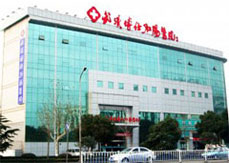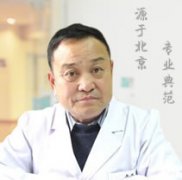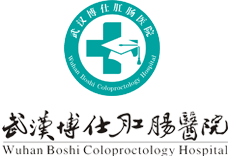大连医声医事 | Shomron Ben-horin教授谈IBD的诊疗


医声医事 | Shomron Ben-horin教授谈IBD的诊疗
编者按
炎症性肠病(IBD)作为消化内科疾病谱中的新星,越来越受到消化界临床工作者的重视,因此在此次广州国际消化高峰论坛上,专门设立了炎症性肠病会场,专注于IBD的研究与诊疗进展,消化界有幸采访到了Shomron Ben-horin,他来自以色列,是Sheba医学中心消化科胃肠免疫学实验室主任,专注于免疫原性和IBD治疗药物监测,以及炎症性肠病机会性感染问题,是以色列特拉维夫大学萨克勒医学院现任副教授、以色列胃协会指导委员会的成员。以下是采访详细内容,欢迎关注。
Shomron Ben-horin
Director,Gastroenterology department of Sheba medical center head,gastro-immunology laboratory, Israel
Shomron Ben-horin has received his M.D from the haddassa medical school of the Hebrew university in Jerusalem Israel ,has completed his gastroenterology training at sheba medical center,Israel,and was a post-doctoral scientist in the laboratory of human immunology at Columbia university,Presbyterian hospital in new-york ,usa.
Prof.ben-horin is the director of the inflammatory bowel disease(IBD)service at the gastroenterology department of sheba medical center, and his research focuses on immunogenicity and therapeutic drug monitoring in IBD,as well as opportunistic infections in IBD.he is currently an associate professor of medicine at the sackler school of medicine of the tel-aviv university,Israel and a member of the steering committee of the Israeli gastroassolciation.prof.ben-horin has authored more than 90 peer-reviewed articles and book and chapters and is currently an associate editor of the journal of crohn”s and colitis(jcc).he has been an invited speaker to many international medical meetings including the united European gastroenterology week(uegw) and European crohn”s and colitis organization(ecco)。
As of 2015 he is an adjunct professor of medicine at the first affiliated hospital of sun-yat-sen university,Guangzhou ,china.
以下是采访详细内容
消化界: Dr. Shomron Ben-horin, thank you very much for accepting the interview of the Chinese Society of Gastroenterology! As an adjunct professor of medicine at the first affiliated hospital of sun-yat-sen university, Guangzhou, China. Would you like to share your experiences and feelings with us?
Shomron Ben-horin教授: I came here about 10 months ago. In 2013 in a congress held in Shanghai, I met Professor Minhu Chen and Dr. Mao Ren, by chance, I talked with Dr. Mao Ren next to a poster as well as Prof. Minhu Chen who invited me to come for a presentation in Guangzhou in 2014, we chatted about how nice Guangzhou was, where there are high leveled people, and maybe one day I could come and do a year. So this is how it came to be, everything in life is chance and luck and meeting good people, then I came with my wife and three kids, their ages are 7,14,16 years old. For family, it is a wonderful experience, and my kids are refusing to leave the school or the Chinese culture, Guangzhou is a very energetic city and it is interesting for a family to live in, in terms of professional, it is a good experience with high medical level, we can exchange ideas, and I can see a lot of new diseases due to environmental and genetic differences, like intestinal tuberculosis or Bechet’s disease is quite rare in Israel, but IBD ( Crohn’s disease and ulcerative colitis) are very common in Israel and we have much experience with them, so that we could work together in China to exchange ideas both for research and for clinical care strategies for patients and exchange ideas. It is a very interesting experience.
消化界: Since your one-year of planned stay is almost over, do you want to stay a bit longer in China?
Shomron Ben-horin教授:Well we definitely thought about that but there are other things to consider, like my hospital position in Israel, and my oldest son is almost 18 for he supposed to serve in the army. If we stay one more year, it means we have to send him to the army on his own, which we do not wish, but I will be coming for long working visits in China in the coming years, we have already built up the friendship.
消化界: How well do you communicate with the doctors and patients at the hospital?
Shomron Ben-horin教授:Most doctors do speak good English, especially the younger generation, but the patients do not, about 95% of the patients do not speak or only speak little English. I learned a few Chinese words, most of the times, I see patients with other Chinese doctors as a team, so communication is not a big problem.
消化界: The main focus of your presentation this time is ” Factors associated with efficacy of biological agents in IBD and managing strategy”, As we know during the long-term treatment using biological agents, some patients may experience adverse effects or reduced curative effects resulting in the cessation of treatment. So the safety of using the biological agents should draw more attention among clinicians. What's your opinion on this issue? Or any other information that you would like to share with us.
Shomron Ben-horin教授:Biologics was a revolution, which provided an effect treatment for those who do not respond to other treatments, although not cured completely but without being diseased, you could observe complete mucosa healing which is not achieved by other ways of treatments. When patients are not responding to conventional agents , this is a good choice of treatment. We need to remember however that even biologics are not 100% perfect, as 20% of patients do not respond at all, and 30%-40% may respond but later will experience loss of effectiveness for long term usage of the biologics.
Adverse effects are not common, but if they occur, they are mostly experienced during the initial phase of treatment, like infection, abscess, hidden TB after 1 month. Then efficacy can sometimes goes down with prolonged use of biologics. But this is not really an issue in China, since most of them use infusion for 8 months, and the efficacy is still quite good.
If there is loss of responsiveness at the fifth or sixth month of treatment, main reason could be antibodies produced against the drug by the patient immune system, therefore we should know more about antibodies as how to manage them. As you said, biologics are not perfect still, we need to discover other treatments.
消化界: Is biologics a popular treatment of IBD in Israel?
Shomron Ben-horin教授:Well yes, 35%-40% of the patients of IBD are getting biologics, the rest are with mild disease and do not require to be treated with the biologics. In Israel biologics are fully reimbursed, patients do not have to pay for biologics treatments, therefore it is not about money, the appropriateness of the treatment matters more. Since 60% of IBD are mild diseases in the world and can be treated with Imuran or Mesalamine, it is not necessary to get them all on biologics.
消化界: Biological agents has become a choice of treatment of IBD, but currently there are other options like surgery, stem cell therapy, immune suppression therapy, intestinal micro-ecology, bionics material organ transplant and so on, which one do you think will become the mainstream in treating of IBD?
Shomron Ben-horin教授:I think all of them. In the future we should be determining the patient-oriented treatment, we might combine two treatments for they have better effectiveness. Since genotype and other factors affect greatly on the effectiveness of the outcome of certain treatment or a combined treatment may be more effective. In the future, we will perform a genetic-biologic profile of patients, and then decide which therapy is best for individual patient based on his or her specific profile。
消化界: At the end, would you please tell us more about the working condition in your country, such as doctors’ working hours, vacation, advancement and academic research?
Shomron Ben-horin教授:Medicine in general is quite advanced in Israel, with modern hospitals and advanced technologies. About 50% of doctors work in governmental hospitals like myself who usually work from 7 or 8 in the morning to 4 in the afternoon without a lunch break, many doctors would work in the private hospitals after hours to make more money since government hospitals do not pay them well. Although academic research is supported more in government hospitals, most doctors in Israel have 2 jobs just for making more money. Typically I see 20-30 patients in IBD clinic each day in Israel. Advancement in Israel is similar than that in China, you need to publish certain amount of paper work in high impact factor journals for you to advance to a higher level of academic position. If you are in an academic center, like I am the director of IBD, I get the chance to do more research, like 3 full days for research, 2 days for clinic and endoscopy, most of the doctors may get 4 day clinical works and 1 day research and had to write paper at night. Many doctors are also working in research with Start-up companies, tying to invent new drugs or medical devices, because many inventions in medicine started in Israel, like the Capsule endoscopy that was invented in Israel.
中文版采访
Shomron Ben-horin,Sheba医学中心消化科胃肠免疫学实验室主任,获得以色列耶路撒冷希伯来大学哈达萨医学院的博士学位,在以色列的sheba医学中心完成了他的消化内科训练,是美国哥伦比亚大学长老会医院人类免疫学实验室的博士后研究员。
Shomron Ben-horin是sheba医学中心炎症性肠病(IBD)部门主任,专注于免疫原性和IBD治疗药物监测,以及炎症性肠病机会性感染问题,是以色列特拉维夫大学萨克勒医学院现任副教授、以色列胃协会指导委员会的成员。撰写了90多篇同行评审的文章和书籍章节,目前是杂志《克罗恩病和溃疡性结肠炎(JCC)》副主编。他曾应邀参加许多国际医学会议包括欧洲胃肠病学周(胃肠病周)和欧洲克罗恩病和结肠炎组织(ECCO)。
在2015中国广州,Shomron Ben-horin是中山大学附属第一医院兼职教授 。
以下是采访详细内容
消化界: Shomron Ben-horin博士您好,非常感谢您能接受中华消化网的采访!2015年,您成为中山大学第一附属医院客座(兼职)教授,我们想了解一下这一年以来您的经历和感受。
Shomron Ben-horin教授:我是大约10个月前来到广州。于2013年在上海的一次学术会议上,有幸遇到陈旻湖等教授,并且很荣幸受邀来到广州,于是带上妻子和三个孩子一起来广州,对整个家庭来讲,来到广州都是一段美好的经历。并且,在广州可以跟医疗同行在学术上以及临床诊疗上进行沟通交流。
消化界: 原计划在中国一年,眼看就要到了,您还会继续留在中国吗?
Shomron Ben-horin教授:还有其他方面需要考虑,孩子即将服兵役,如果我不回国,孩子只能一个人回国,这是我们不想看到的。后期肯定要经常往返于以色列和中国之间,因为已经建立了深厚的友谊。
消化界: 平时您在中国出诊时怎么与患者沟通?
Shomron Ben-horin教授:多数患者还不能讲英语,但是多数年轻医生可以讲英语,因此我们以团队方式出诊。
消化界: 本次会议您讲授的主题为《影响IBD生物制剂疗效的因素及对策》,我们知道:有部分患者在长期使用生物制剂治疗IBD的过程中因发生不良反应或疗效降低而被迫停药。因此,生物制剂长期应用的安全性问题应引起临床医师的足够重视。不知道您这次的主题是不是围绕这一内容?还是您带来了一些新的内容?
Shomron Ben-horin教授:生物制剂是一种革命,给那些对其他治疗无反应的患者提供了另外一个有效的治疗手段,通过这个技术,你可以得到完整的愈合后粘膜,而其他治疗方法却达不到这个效果。当患者对传统因子没反应的时候,这是一个很好的选择。我们需要记住,虽然生物制剂不是100%完美,约20%的患者对它没有回应,30% - 40%的刚开始有反应,随着使用时间延长,其疗效会降低。
不利影响并不常见,一旦它们发生,大多是在治疗的初始阶段,如感染,脓肿,隐匿性肺结核。伴随着较长时间使用生物制剂,效果有时会下降,但这一情况在中国并不明显,因为他们大多输液8个月,疗效还是相当不错的。
如果在治疗的第5个月或第6个月病人对药物的反应性丧失,则其主要原因可能是病人的免疫系统对药物产生了抗体,因此,我们应该更加深入的去了解抗体以及如何掌控它们。正如你所说,生物技术还不完善,我们需要发现其他的治疗方法。
消化界: 在以色列治疗炎症性肠病的时候,用的生物制剂多吗?
Shomron Ben-horin教授:是的,35%~40%的IBD患者采用生物制剂治疗,其他的症状不明显,不需要使用生物制剂治疗。在以色列,生物制剂是完全报销的,患者不需要支付生物制剂的治疗费用,所以这不是钱的问题,更重要的是采用生物制剂治疗是否得当。60% 的IBD患者属于轻微的,并且可以采用硫唑嘌呤或美沙拉嗪治疗,因此没有必要让所有人都采用生物制剂治疗。
消化界: 生物制剂成为治疗IBD相关疾病的一个选择,目前针对IBD的诊疗措施还有其他研究方向,比如说外科手术、干细胞治疗、免疫抑制疗法、肠道微生态、仿生材料器官替换等等,您觉得未来哪个方向会成为IBD治疗的主流?
Shomron Ben-horin教授:我认为它们都是。在未来,我们应该确定以病人为导向的治疗,我们可能会结合两种治疗方法,因为这样会有更好的效果。由于基因型和其他因素对某些治疗效果的有效性有很大的影响,或许联合治疗会更有效。在未来,我们将参照患者的遗传生物学表达情况,由每个患者不同的遗传生物学表达情况来确定针对性的治疗措施。
消化界:最后,想请您帮大家简要介绍一下以色列那边医生的工作状况,比如他们的工作时间、休假、晋升与考试、学术科研等,谢谢。
Shomron Ben-horin教授:以色列的医学是相当先进的,有着现代化的医院和先进的技术。大约50%的医生像我一样在公立医院工作,通常从上午7、8点钟工作到下午4点钟,期间没有午休时间,之后,许多医生会选择继续在私人医院工作几个小时,赚更多的钱,因为公立医院支付的不是很多。虽然公立医院大力支持学术研究,在以色列大多数医生有2个工作只是为了赚更多的钱。
在以色列的IBD诊所里,我通常每天接诊20-30例患者。在以色列,医生的晋升与中国类似,你需要在具有较高影响力的学术期刊上发表一定数量的论文,才能晋升到更高的学术地位。如果你是在一个学术中心,像我是IBD的主任,我有机会去做更多的研究,如3天的研究,2天的临床和内镜检查。大部分医生是4天临床工作和1天的研究工作,因此要晚上才有时间写论文。许多医生也在新的医药公司做研究工作,试图发明新的药物或医疗设备,因为在医学上,许多发明源于以色列,像胶囊内镜就是以色列发明的。
我是医生 说给你听
肖祥斌 胃肠科主任医师
→ 咨询给胃炎患者的几点意见:胃炎一般分为内痔、外痔和混合痔三种,而内痔又有一、二、三、四度之分,选择治疗方法必须根据患痔类型、轻重程度具体决定。如对症状较轻的一度、二度内痔可以选择药物治疗,而对早期血栓性外痔来说,手术治疗效果要比用药好。
程芳 女性胃肠主任
→ 咨询给胃炎患者的几点意见:注意饮食,忌酒和辛辣刺激食物,增加纤维性食物,多摄入果蔬、多饮水,改变不良的排便习惯,保持大便通畅,必要时服用缓泻剂,便后清洗肛门。对于脱垂型痔,注意用手轻轻托回痔块,阻止再脱出。避免久坐久立,进行适当运动。
相关文章阅读
- 大连医声医事 | Shomron Ben-horin教授谈IBD的诊疗
- 大连听课笔记 | 吴开春教授:胃癌预防和治疗的亚太共识意见
- 大连医周医事 | 治病救人、伤医事件、大政策一个都不能少!
- 大连科研工作者们,你还在为找论文翻墙吗?
可在下面输入您的电话号码,点击免费通话,我们会第一时间拨打电话给您,全程通话免费。


























